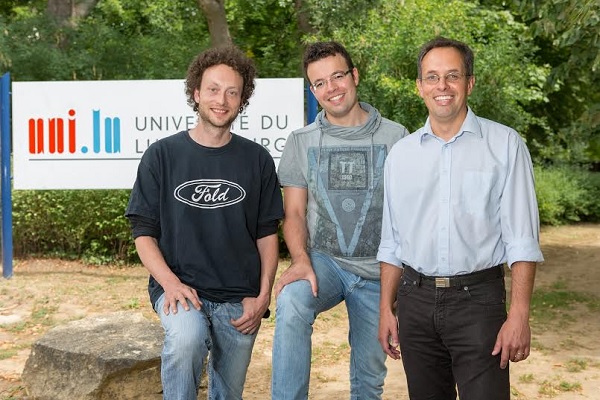
The University of Luxembourg announced this morning that its international training network for young scientists conducting cancer research has been submitted to the Marie Curie Programme of the European Commission.
The training network was developed together with 17 partners and researchers of the University and was applied for the 'Marie Sklodowska Curie' Programme of the European Union (EU) which funds similar networks designed for researchers with a focus on international mobility.
The EU granted over three million euros to the “MEL-PLEX” network, with around €500,000 intended for the Life Sciences Research Unit of the University of Luxembourg. This will finance two of the overall fifteen participating PhD students who recently commenced their work at the University of Luxembourg, as well as their research projects and their residences with project partners in Europe, USA and in Israel.
The MEL-PLEx Network ('Exploiting MELanoma Disease ComPLEXity to Address European Research Training Needs in translational Cancer Systems Biology and Cancer Systems Medicine') connects universities, hospitals and businesses from eleven different countries from its base in Dublin. Among these participating countries are Belgium, Luxembourg, Ireland, Denmark, Israel and USA - all of which work on skin cancer.
"If detected too late, this cancer is generally lethal, because it is widely resistant to chemotherapy and no other alternative therapy has yet achieved any significant breakthrough," explained Dr. Thomas Sauter. The search for new methods of early detection as well as for alternative therapies is thus particularly urgent. Therefore, a strong networking between different research areas and with companies is crucial: “Challenges like these, where vast amounts of data are involved among other things, cannot be tackled alone. Different scientific fields need to grow together”.
The two PhD students, Sébastien de Landtsheer and Marco Albrecht, were selected among 350 candidates and will receive an international, interdisciplinary and intersectoral training. de Landtsheer will spend an initial eighteen months in Luxembourg working on a mathematical description of signalling pathways in skin cancer, in which over 100 different molecules interact. He will reportedly then expand his project during a three-month period at the University College of Dublin and a further six months in a pharmaceutical company in Boston, USA.
“As I will be in contact with experts from different fields, I will learn more and be able to establish many contacts as opposed to staying in one institution only," de Landtsheer explained.
“Thanks to the different partners of the network, we have ideal career conditions," added colleague Marco Albrecht. He himself will be working on creating a 3D Model of a tumour in Luxembourg, which he will refine at the Hospital of the University of Dresden and at the company Optimata in Israel. The training will be completed by workshops on project planning, data analysis and microscopy.
Photo by University of Luxembourg (L-R: Sébastien de Landtsheer; Marco Albrecht; Prof. Dr. Thomas Sauter)








